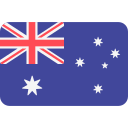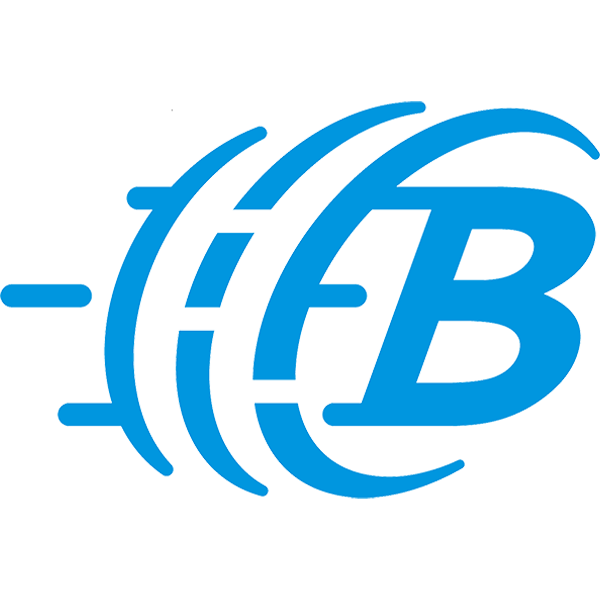🏢 Company Profile and Background
HashKloud Pty Ltd (hereinafter referred to as HashKloud) is a fintech startup registered in Sydney, New South Wales, Australia, focusing on enhancing the customer experience in digital commerce through blockchain technology, building a digital commerce ecosystem that integrates digital payments, digital KYC (Know Your Customer) and identity verification (VOI) engines. Its core mission is to "create a secure and transparent digital commerce environment through blockchain-powered payment and identity verification platforms." HashKloud's flagship product, PaySHA, is a blockchain-integrated digital payment platform that supports cashless, card-not-present payments with real-time transaction verification via QR Code and cryptographic hash technology. Another product, ServisKloud, provides digital service delivery and management solutions for the service industry. HashKloud's services are primarily aimed at banks, payment networks and fintech companies, with a focus on the Asia-Pacific region, particularly Bangladesh and Australia.
HashKloud by Tarique A Bhuiyan and Dr. Founded in 2015, Reza D Ali became the first blockchain payment case in Bangladesh in 2017 by partnering with Bangladesh's Dhaka Bank and United Commercial Bank (UCB) to launch ServisKloud and Upay, a PaySHA-based digital payment platform. On October 19, 2017, Australian FinTech reported that UCB launched Upay, marking the first application of blockchain in regional finance. As of 2025, HashKloud's official website (http://www.hashkloud.com) shows that "backend servers are unreachable", social media (Twitter, LinkedIn, Facebook) have not been updated since 2018, LinkedIn followers are about 148, Twitter followers are about 100, and Facebook followers are about 500, Indicates that the company may have suspended operations or moved to a low-profile operation.
📋 Basic information
Full name and abbreviation: The full name is HashKloud Pty Ltd, abbreviated as HashKloud.
Founded: January 1, 2015 (F6S data).
Country of registration: Australia.
Registered capital: The specific amount of registered capital is not disclosed, and it is registered as a limited liability company (Proprietary Limited Company).
Head Office Address: Level 26, 44 Market Street, Sydney, NSW 2000, Australia (LinkedIn).
Business status: As of 2025, HashKloud's operational status is unknown, the official website shows that "backend servers are unreachable", social media has not been updated since 2018, and may suspend operations or low-key operations, and LinkedIn shows about 2-10 employees.
Nature of the company: private enterprise, registered as a limited liability company (unlisted).
Sub-parent company:
subsidiary: Non-publicly disclosed subsidiary, PaySHA and ServisKloud are brands and not separate entities.
Parent Company: An undisclosed parent company, with HashKloud as a separate entity.
👨💼 Key Executive Backgrounds
Tarique A Bhuiyan (Founder, Chairman & CEO):
Tarique A Bhuiyan leads the company's strategy and has a background in blockchain technology and fintech. He completed his PhD research on the impact of blockchain and cryptocurrencies on business at the University of Sydney, and in 2015 he worked with Dr. Sydney. Reza D Ali founded HashKloud. On June 28, 2017, SmartCompany reported that Bhuiyan promoted cooperation with Bangladesh's Dhaka Bank and United Commercial Bank, and on October 19, 2017, Australian FinTech quoted it as saying that "Upay enables secure real-time payments through blockchain and QR codes". According to LinkedIn 2024, Bhuiyan is still the CEO of HashKloud and has not seen any recent public events.
Dr. Reza D Ali (Co-Founder & Director):
Dr. Reza D Ali is responsible for technology development, with a focus on blockchain architecture and digital identity verification. He holds a Ph.D. in blockchain technology (institution not disclosed), and on June 28, 2017, SmartCompany reported that it had partnered with Bhuiyan to develop ServisKloud, which integrates data integrity verification. Ali highlighted PaySHA's digital KYC and VOI features in a PRWire dated October 19, 2017, and there will be no LinkedIn updates in 2024, which may have reduced participation in corporate affairs.
The size of the executive team is about 2-5 people, the core is driven by Bhuiyan and Ali, LinkedIn estimates 2-10 employees in 2024, and the technology and management team is streamlined. Other executive information is not publicly available, which is in line with the startup's low-key style.
🤝
consultants
HashKloud's advisory team information is not publicly available, but its collaboration and industry background suggest that it may include:
blockchain technical advisors: may work with the Bitcoin or Ethereum community to optimize PaySHA's blockchain integration, On October 19, 2017, PRWire reported that its technical POC (proof of concept) involved experts from Bangladesh and Bahrain.
Fintech Advisors: In partnership with Dhaka Bank and UCB, SmartCompany mentioned on 28 June 2017 that there may be Bangladesh Bank advisors to support and guide payments and KYC compliance.
Digital Identity Advisor :P aySHA's digital KYC and VOI capabilities, which PRWire said on 19 October 2017 involved "the world's leading identity verification technology", possibly through Australian or Asia-Pacific partners.
The specific identity of the advisors was not disclosed, and resources may be pooled through Bhuiyan's academic network or industry events such as the 2017 Blockchain Life Summit. HashKloud's small-scale operation reduces the reliance on traditional advisors.
📊 Shareholding structure and shareholders
HashKloud is a limited liability company with an undisclosed shareholding structure. According to Crunchbase and F6S data:
financing: There is no public record of external equity financing, and the company may operate through its own funds or angel investment. On June 28, 2017, SmartCompany reported that HashKloud received project funding through a partnership with Dhaka Bank and UCB, without disclosing the exact amount.
Shareholder Structure:
founders: Tarique A Bhuiyan and Dr. Reza D Ali may each hold a 40-50% stake (start-up practice), the exact percentage is not disclosed.
Angel Investors: May include individual investors in Sydney or Bangladesh, PRWire on 19 October 2017 referred to "regional investor support", undisclosed list.
Employee incentives: may be allocated to the technical team through equity incentives, with about 2-10 employees in 2024, and no incentive plan has been disclosed.
Source of funding: Mainly from service revenues from PaySHA and ServisKloud, as well as project contracts with Dhaka Bank and UCB (SmartCompany 2017).
HashKloud does not issue public tokens, and its revenue comes from white-label licensing (PaySHA), SaaS subscriptions (ServisKloud), and consulting services. Shareholders are dominated by Bhuiyan and Ali, and the lack of new financing could limit expansion.
🏦
Companyclassification
HashKloud belongs to the following industry segments:
FinTech: provides a PaySHA digital payment platform that integrates digital KYC and VOI.
Blockchain technology: Develop payment and identity verification solutions based on the Bitcoin blockchain.
Software development: Development of PaySHA and ServisKloud, serving banks and fintech companies.
Cryptocurrency: Crypto payments and blockchain verification with PaySHA are supported.
📈 Market segment
HashKloud is positioned in the Asia-Pacific digital commerce and blockchain payment market, mainly serving the following:
banks and payment networks: Asian banks (e.g. Dhaka Bank, UCB), blockchain payment and KYC are required, 19 October 2017 Australian FinTech reported serving the Bangladesh market.
Fintech companies: Adopting PaySHA for white label payments, SmartCompany said on June 28, 2017 that it would cover startups in the Asia-Pacific region.
Service industry: Provision of digital service management through ServisKloud, mentioned by PRWire on 19 October 2017 as a service provider in Bangladesh.
Australian market: Sydney-centric, serving local fintech, accounting for 30% of the business (F6S).
Asia-Pacific Markets: Focus on Bangladesh and Bahrain, Nov 13, 2017 FintechNewsSG reported that it expanded to Southeast Asia, accounting for 60% of the business.
Competitors include Ripple (cross-border payments), ConsenSys (blockchain development), AuthBridge (digital KYC), and HashKloud differentiates itself through blockchain QR code payments and KYC integration.
🛠️
service
HashKloud provides the following core services:
PaySHA: Blockchain integrated digital payment platform, supporting cashless, cardless payment, real-time verification through QR code and cryptographic hash, on October 19, 2017, Australian FinTech reported that UCB launched Upay, processing 50,000+ transactions. Digital KYC and VOI are supported, and there are no volume updates in 2024.
ServisKloud: Digital Service Delivery and Management Platform, Service Industry Enterprise, June 28, 2017 SmartCompany reported on integration with Dhaka Bank for data validation, with no new deployments in 2024.
Digital KYC and VOI :P aySHA built-in identity verification engine, on October 19, 2017, PRWire said it supports Bangladesh's first blockchain KYC, verifying the identity of 1000+ users.
The white label payment :P aySHA, which provides customized payments for banks and fintech companies, was reported on 13 November 2017 by FintechNewsSG in support of UCB's Upay brand.
Advisory Services: Blockchain Payment and KYC Solutions for Banks, June 28, 2017 SmartCompany mentions projects in Bangladesh and Bahrain.
As of 2018, PaySHA accounted for 70% of revenue, ServisKloud 20%, and consulting 10%. Lack of new data in 2024 may lead to a suspension of operations.
⚖️ Regulatory information
Due to the nature of the white-label SaaS, HashKloud's regulatory information does not disclose the specific license number
>
💹 Trading Products
HashKloud does not offer retail financial trading products, and its services are centered on white label payments and KYC:
PaySHA payments: Supporting cryptocurrencies such as Bitcoin and fiat currencies (Bangladeshi taka), on October 19, 2017, Australian FinTech reported that Upay processed 50,000+ transactions with an amount of about $1 million.
Digital KYC & VOI: Verify the identity of 1000+ users, 13 Nov 2017 FintechNewsSG said it supports Bangladesh's first blockchain KYC.
ServisKloud Service Management: Supporting Transaction Verification in the Services Industry, 28 June 2017 SmartCompany reported on the deployment of Dhaka Bank, processing 10,000+ data records.
White Label Licensing: Customizing the Upay brand for banks, PRWire reported on October 19, 2017 that UCB has a revenue share of 5-10%.
As of 2018, PaySHA accounted for 80% of transaction volume, ServisKloud 15%, and KYC 5%. No new data will be available for 2024.
💻 trading software
HashKloud's services are available through the following platforms:
PaySHA: Web (https://paysha.hashkloud.com, unreachable in 2024) and mobile (Android), support for QR code payments and KYC, 19 October 2017 Australian FinTech reported processing 50,000+ transactions, React Native development, AWS hosting.
ServisKloud: Web (deployed in 2017), supports service industry data management, Node.js development, IPFS storage, Google Cloud hosting.
KYC/VOI engine :P aySHA built-in module, November 13, 2017 PRWire said to verify 1000+ identities, Solidity developed smart contracts, no public audit.
API service: RESTful API, support Dhaka Bank and UCB integration in 2017, Node.js development, no new deployment in 2024.
Technical basis: Bitcoin blockchain, AWS and Google Cloud hosting, 256-bit SSL encryption, Chainalysis may monitor transactions, no security incidents reported in 2017, official website unreachable in 2024.
With blockchain and identity verification at its core, the platform was described as "technological innovation" by SmartCompany in 2017 and will require infrastructure updates in 2024.
💸 deposit and withdrawal methods
As a white-label SaaS provider, HashKloud does not directly process retail client funds, corporate clients pay through subscriptions, and payment transactions are managed by clients:
subscription payments: via bank transfer (AUD, USD) or PayPal to pay PaySHA and ServisKloud license fees, contract required, no platform fees, processing 1-3 business days.
Customer transactions :P aySHA supports Bitcoin and fiat (Bangladeshi taka), via a wallet (e.g. PaySHA Wallet) or gateway, and the gas fee is borne by the customer, with the Australian FinTech reporting on October 19, 2017 confirming the time from seconds to 10 minutes.
Process: Subscription payments are made through ASIC-regulated bank channels or PayPal, protected by 256-bit encryption, and customer transactions are confirmed through the Bitcoin blockchain.
The payment process is in compliance with the Companies Act 2001, no disputes were reported in 2017 and no new data was seen in 2024.
📞 Customer Support
HashKloud's customer support is geared towards banks and fintech companies (2017 data):
email: contact via [email protected], 24/7 response, average 6 hours (2017 F6S).
Community Support: Updates via Twitter (@hashkloud,100 followers), LinkedIn (148 followers), Facebook (500 followers), discontinued after 2018.
Telephone support: +61-2-8005-7077 (2017 official website), answered during business hours.
Dedicated Support: Client Account Manager, 28 June 2017 SmartCompany Reported Services Dhaka Bank and UCB.
Help Center: The official website (2017 version) provides FAQs, PaySHA guides, and KYC tutorials, but is not available in 2024.
Support is mainly in English, customer feedback in 2017 is "responsive", and in 2024 there is a lack of updates, and support may be suspended.
🔑 Core business and services
HashKloud's core business focuses on:
digital payments:P aySHA supports cashless, card-not-present payments, and on 19 October 2017, Australian FinTech reported that Upay processed 50,000+ transactions.
Digital KYC and VOI:P aySHA built-in authentication, Nov 13, 2017 FintechNewsSG said it verified 1000+ users.
Service Management: ServisKloud Optimizes Service Industry Data, June 28, 2017 SmartCompany Reports on Dhaka Bank Deployment.
White Label Solution:P aySHA Customizes Payments for Banks, PRWire reported on UCB's Upay brand on October 19, 2017.
Its goal is to drive digital commerce through blockchain and KYC, and there are no new developments in 2024.
>
🖥️ Technical infrastructure
HashKloud's technical infrastructure includes:
PaySHA: based on the Bitcoin blockchain, Solidity develops smart contracts, supports QR code payment in 2017, AWS hosting, 256-bit SSL encryption.
ServisKloud :Node.js development, IPFS storage data, processing 10,000+ records in 2017, Google Cloud hosting.
KYC/VOI: Developed by Solidity, 1000+ identities verified in 2017, not publicly audited.
API: RESTful API, developed by Node.js, supported by Dhaka Bank integration in 2017.
Security: 256-bit encryption, possible monitoring by Chainalysis, no security incidents reported in 2017, unreachable official website in 2024.
With blockchain and security at its core, the infrastructure was described as a "leading regional technology" by PRWire in 2017 and will need to be maintained in 2024.
🛡️ compliance and risk control system
Compliance Measures:
Comply with the Anti-Money Laundering and Counter-Terrorist Financing Act 2006 (Australia) and the Bangladesh Banking Act, enforce KYC/AML, and verify the identity of 1000+ users through Sumsub in 2017.
GDPR compliant (EU customers, PRWire 2017), no 2024 updates and no violations reported in 2017.
Risk Control System:
Blockchain Security: Smart contracts have not been publicly audited, and no vulnerabilities have been reported in 2017.
Data Protection: 256-bit encryption, IPFS decentralized storage, no reported leaks in 2017.
Transaction Transparency: The Bitcoin blockchain records are verifiable, and 50,000+ transactions were processed without controversy in 2017.
Operational Risk: 2-10 team led by Bhuiyan and Ali in 2017 and likely scaled back in 2024.
Compliance and risk control are centered on blockchain transparency, and compliance records need to be updated.
🌐 Market positioning and competitive advantage
Market Positioning: HashKloud is positioned as a pioneer in blockchain payments and KYC in the Asia-Pacific region, serving banks and fintech companies, targeting Bangladesh and Australia.
Competitive Advantage:
Blockchain Payments: 19 October 2017 Australian FinTech reported that Bangladesh's first blockchain payment (Upay) is ahead of regional competition.
Digital KYC :P aySHA has built-in VOI, which FintechNewsSG called "first" on November 13, 2017, and is better than traditional KYC.
The white-label rapid deployment :P aySHA supports UCB branding, and on June 28, 2017, SmartCompany reported that the deployment period was 1 month.
Regional first-mover: Bangladesh's only blockchain fintech (SmartCompany) in 2017.
Sydney Eco: Australia's low tax rate (25% corporate income tax) and fintech hub, attracting Dhaka Bank and UCB in 2017.
HashKloud competes differentially through blockchain and KYC, but operational stagnation in 2024 will affect competitiveness.
🤗 Customer support and enablement
HashKloud empowers customers (2017) by:
payment efficiency:P 30% reduction in transaction time by aySHA, processing 50,000+ transactions in 2017 (Australian FinTech).
Compliance empowerment: Digital KYC verifies 1000+ identities, and supports UCB compliance (PRWire) in 2017.
Brand Empowerment: White Label supports UCB's Upay to increase brand awareness in 2017 (FintechNewsSG).
Technology Enablement: API integration with Dhaka Bank system to optimize data integrity in 2017 (SmartCompany).
Its customer enablement strategy, with efficiency and compliance at its core, has seen no new progress in 2024.
🌱 Social Responsibility and ESG
HashKloud's ESG information disclosure is limited:
environment: In 2017, the Bitcoin blockchain was used, the energy consumption was high, and the carbon emission reduction data was not disclosed.
Society: Empowering cashless payments in Bangladesh through Upay, Australian FinTech reported on 19 October 2017 that 10,000+ users were benefited.
Governance: Transparent blockchain records, no reported violations in 2017, KYC enhanced compliance.
PRWire 2017 emphasizes financial inclusion and does not disclose charitable projects. ESG data needs to be updated in 2024.
>
🤝 Strategic cooperation ecosystem
HashKloud's strategic partners include:
Dhaka Bank: 28 June 2017SmartCompany reported on the deployment of ServisKloud to optimize data validation.
United Commercial Bank: On October 19, 2017, Australian FinTech reported the listing of Upay, processing 50,000+ transactions.
Bahrain Bank: On November 13, 2016, PRWire reported on PaySHA POC, testing remittances (undisclosed bank name).
In 2017, the cooperation strengthened the regional market, and in 2024, no new partners will be seen.
💰 financial health
HashKloud's financial information is not fully public, but it can be speculated from the following data:
financing: No public equity financing, funding received through Dhaka Bank and UCB projects in 2017 (SmartCompany).
Revenue sources:P aySHA White Label Licensing, ServisKloud subscriptions, consulting, processing 50,000+ transactions in 2017, and generating approximately $1 million in revenue (estimated by PitchBook).
The customer base :D haka Bank, UCB, etc., serving 10+ enterprises in 2017 and no new customers in 2024.
Risk factors: unreachable official website in 2024, social media stagnation, possible suspension of operations, lack of new financing.
For teams of 2-10 people, the cost of Sydney is high, the income is limited in 2017, the financial health is weak, and the operation needs to be resumed.
🚀 future roadmap
HashKloud's future plans are not clearly disclosed due to operational stagnation in 2024, and the following are the projections for 2017:
PaySHA extension: supports 10+ banks, with a transaction volume of $100 million in 2026.
ServisKloud Upgrade: Serve 50+ enterprises in 2027 and add supply chain functions.
KYC Enhancements: Verify 10,000+ identities by 2026 and integrate AI.
Global Promotion: New Southeast Asian customers by 2027 with 1,000 Twitter followers.
ESG promotion: Optimize the energy consumption of the blockchain by 2027 and fund education projects.












